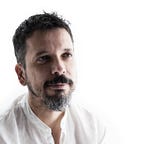Are people in your organization good, creative and trustworthy?
Whether you think they are or are not — you’re right.
Suppose you believe that people are untrustworthy and, if left unchecked, they will do something stupid, wrong or evil. In that case, you will design and use configurations for your organization where someone who supposedly knows better will lead, guide, rule, govern and control everyone else to prevent them from doing stupid, wrong or evil things.
Sounds familiar? I may be a bit judgmental here, but I would say way too many organizations are designed and managed in this way.
But is that belief true?
Can we absolutely know that it is true?
Indeed, the debate about people being inherently good or bad has been going on forever. Do we have an innately good nature corrupted by society, or are we naturally vicious and kept in check by society?
Different studies hint at the first option being true, like this one on toddlers showing that “infants prefer an individual who helps another to one who hinders another, prefer a helping individual to a neutral individual, and prefer a neutral individual to a hindering individual.” This other study suggests that human beings’ first impulse is to cooperate.
However, beyond what studies say, what truly matters is what you believe to be true.
Because beliefs shape reality, or as Anil Seth says in his TED talk, “the world we experience comes as much, if not more, from the inside out as from the outside in.” The reality you experience mirrors your belief. So, paraphrasing a famous quote attributed to Henry Ford, whether you think they are good or bad— you’re right.
And if I look at most configurations adopted in organizations, it seems that the majority believes humans are naturally prone to do stupid, wrong or evil things. So they are designed to keep everyone in check through power, rigid hierarchies, bureaucracy, rules and norms.
And guess what? In these organizations, people’s freedom, creativity, autonomy and sense of meaning — the pillars of intrinsic motivation — are crushed. No wonder most people end up being lazy, demotivated, burned out and untrustworthy.
Luckily, there are fantastic theories, frameworks and models to help us build new configurations. Works like Humanocracy by Gary Hamel and Michele Zanini, Reinventing Organizations by Frédéric Laloux and Holacracy by Brian J. Robertson, to name a few.
Unfortunately, knowing is not enough. Otherwise, we should see more pervasive adoption of these new configurations.
A shift is needed.
The shift in the world begins with a shift in our thinking. Shifting our thinking does not change the world, but it creates a condition where the shift in the world becomes possible. — Peter Block
This shift implies letting go of the core belief that people are naturally prone to selfish, lazy and silly choices and behaviours to see, recognize and acknowledge their extraordinary innate potential.
So, in any organization or community struggling to change towards a more open, collaborative, cooperative, inclusive and democratic configuration, I would start by probing into their belief about the inherent nature of human beings.
Seeing and acknowledging that belief is the first step toward subtracting it. Once we begin to see every person as a gift with extraordinary creative potential, everything begins to change.
What do you believe? Do people have something innately valuable to offer the world, or are they weak and untrustworthy, so they must be led and controlled? Or maybe somewhere in between?
What would your organization be if you assumed that people are inherently intelligent, creative, and willing to cooperate for the greater good?
Subtracting this belief is not easy because it is planted quite deep in our minds. So deep that often we can’t even see it, let alone recognize it. It is also reflected in our habits and ways of doing things. Everything around us is designed to reinforce that belief. Yet, as Peter Block suggests, when we make that inner shift in our thinking, we create the possibility for that change to happen. Even more, we become that possibility.
And that is everything we need. Becoming the possibility for change. And maybe designing new tiny practices and habits to reinforce and nurture that shift in ourselves. Anything else will unfold from here.
The concept of original sin, a dogma of Western Christianity, probably played a crucial role in developing this belief, at least in western cultures. Ultimately, the message is that we are all born with something intrinsically wrong for which we must atone throughout our life. In the fourth century, the English monk and theologian Pelagius fought against this belief by arguing that the original sin did not taint human nature and that by divine grace, humans have free will to achieve human perfection. Unfortunately, vigorously opposed by St Augustine, Pelagius was declared a heretic and marginalized, and we are left with the duty to follow the rules and obey whoever is in charge to earn our ultimate reward.
The first two questions at the beginning are based on The Work by Byron Katie. A powerful practice to question our beliefs and assumptions. The reference to Pelagius comes from The Age of Heretics by Art Kleiner, a must-read.
